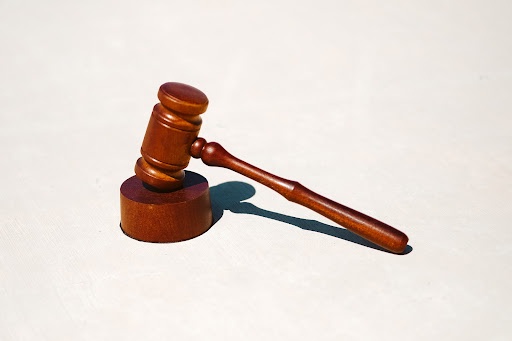Vicarious liability arises when a person is held liable for the criminal actions of another. In other words, vicarious liability apportions blame liability on someone who didn't directly cause harm in question.
Navigating a criminal case that involves vicarious liability can be challenging. That said, many people hire a Van Nuys criminal lawyer for expert legal guidance on how to navigate such cases.
What are the Elements of Vicarious Liability?
Here are three elements of vicarious liability:
Criminal Conspiracy
Under criminal conspiracy, vicarious liability arises when two or more people conspire to commit a criminal act. Co-conspirators may be held responsible for the criminal acts committed by others in furtherance of the conspiracy. This theory recognizes that co-conspirators share a common criminal purpose and therefore can be held liable for the foreseeable actions of their fellow conspirators.
Accomplice Liability
Accomplice liability holds a person accountable for the actions of another if they actively participate in or aid the commission of a crime. In this context, participating in a crime can include the following actions:
- Assisting
- Encouraging, or
- Facilitating the principal offender in carrying out the criminal act.
Under accomplice liability, accomplices (abettors) are held vicariously liable for the actions committed by the principal offender. Why? Because their participation aids in the commission of the alleged crime.
Vicarious Liability for Felony Murder
Vicarious liability for felony murder arises when someone is murdered during the commission of a felony. If someone willfully participates in a felony or abets its commission, they're held vicariously liable for resulting deaths. Even if they didn't directly commit the fatal act, their participation renders them accountable for the resulting loss of life.
What are the Shortcomings of the Principle of Vicarious Liability?
The principle of vicarious liability, although widely recognized and applied in legal systems around the world, is not without its shortcomings. While it serves as a means to hold parties accountable for the actions of others, there are several limitations and criticisms associated with this doctrine.
Here are the common shortcomings of the vicarious liability principle:
Inequitable Burden on Employers
Vicarious liability places a significant burden on employers by holding them liable for the actions of their employees. This may be seen as unfair, particularly in cases where the employer had no control or knowledge of the employee's misconduct.
Lack of Fault on the Part of the Employer
Vicarious liability imposes liability on employers even if they were not negligent or directly involved in the wrongful act. This can lead to situations where innocent employers are held responsible for the actions of their employees, despite taking reasonable precautions.
Difficulty in Defining the Scope of Employment
Determining whether an employee's actions occurred within the scope of their employment can be challenging. Courts may have to make subjective judgments, leading to inconsistent outcomes and uncertainty.
Limited Application to Independent Contractors
Vicarious liability traditionally applies to employer-employee relationships, but its application to independent contractors is limited. Establishing the level of control necessary to impose liability on a contracting party can be complex and vary across jurisdictions.
Inadequate Compensation for Victims
While vicarious liability provides an avenue for seeking compensation from employers, it may not address the harm incurred by victims comprehensively. Employers may not have sufficient resources or insurance coverage to provide complete restitution.
Incentive for Inadequate Employee Supervision
Employers may become overly reliant on the principle of vicarious liability, leading to a reduced incentive to adequately supervise and train their employees. This could result in a higher likelihood of negligence or misconduct.
Disincentive for Hiring
Fear of potential liability may discourage employers from hiring people with a criminal history. This could hinder the rehabilitation and reintegration of such people into the workforce.
Imposition of Liability on Deep-pocketed Defendants
Vicarious liability often targets employers who have deeper pockets compared to individual employees. This may result in an unfair distribution of liability, with injured parties seeking compensation from the party more capable of satisfying the judgment.
Complexity in Multi-party Cases
When multiple parties are potentially liable, determining the extent of each party's liability and apportioning damages can become complex and time-consuming. This may lead to prolonged legal proceedings and increased costs for all parties involved.
Inadequate Deterrent Effect
While vicarious liability aims to promote responsible behavior, its effectiveness as a deterrent is not always clear. Some argue that imposing liability on employers may not effectively deter employees from engaging in wrongful acts, as the consequences primarily affect the employer rather than the individual wrongdoer.
Vicarious liability is a critical legal doctrine that imposes responsibility on one party for the actions or omissions of another. Through the application of this principle, the legal system protects the interests of injured parties and fosters accountability among people who can prevent harm.


No comments yet